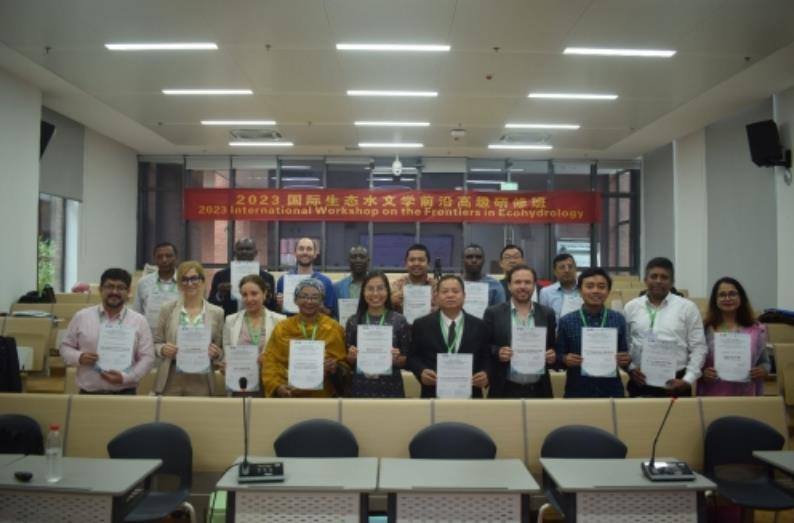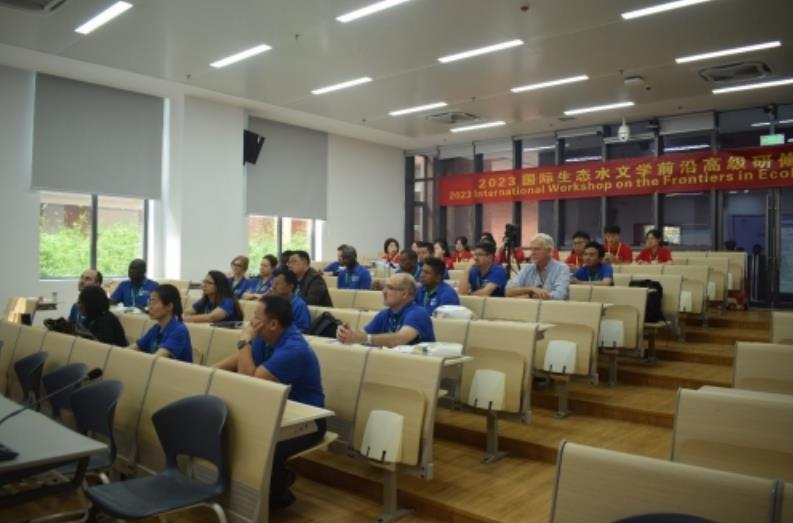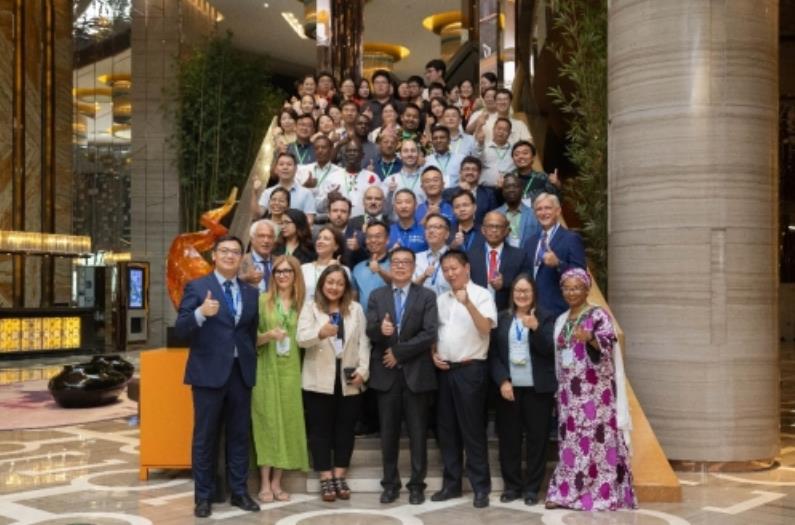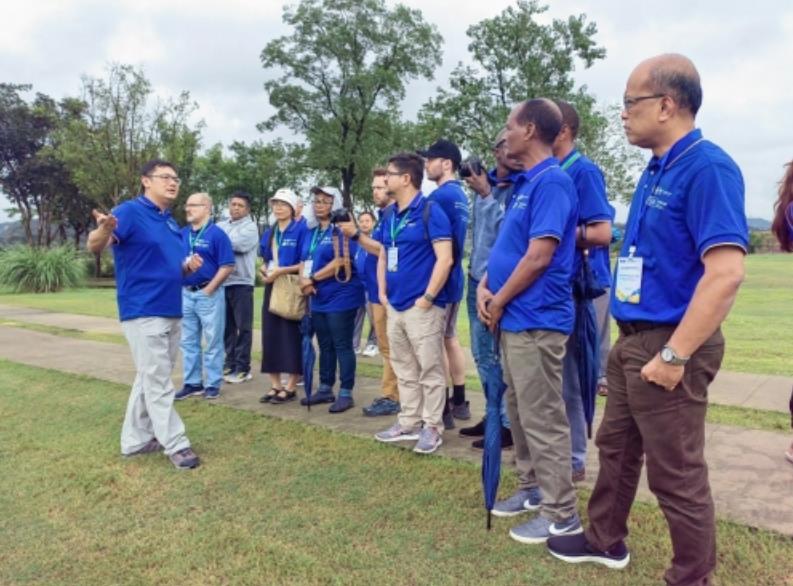

The 2023 "Belt and Road" and International Advanced Seminar on Ecohydrology in Developing Countries, co-sponsored by Chongqing Institute of Green and Intelligent Technology, Chinese Academy of Sciences (hereinafter referred to as 'Chongqing Academy') and the UNESCO International Hydrological Programme (UNESCO-IHP), and funded by the International Cooperation Bureau of the Chinese Academy of Sciences, was successfully held in Chongqing from September 4th to 22nd, 2023. The theme of this training program was "Ecohydrology: Natural-Based Solutions for Sustainable Water Resource Management." Nineteen participants from 16 countries, including Chile, Colombia, Ecuador, Ethiopia, Indonesia, Malaysia, Iran, Kenya, Lebanon, Nepal, Nigeria, Sri Lanka, Laos, Tanzania, Tunisia, and Vietnam, attended the training.

The international experts who came to China to teach at the training program included Professor Luis Chicharo, Vice Chairman of the UNESCO Ecohydrology Academic Committee and professor at the University of Algarve in Portugal, and Professor Giuseppe Arduino, UNESCO Ecohydrology Chair Professor. The domestic lecturers were from institutions such as the Chongqing Academy, the Institute of Geographic Sciences and Natural Resources Research, the Institute of Subtropical Agriculture, Xiamen University, Sichuan University, Chongqing University, and Southwest University. The training program focused on the forefront of international ecohydrology, covering four main areas: the basics of ecohydrology, ecohydrology and the United Nations Sustainable Development Goals (UN SDGs), the intersection of ecohydrology and artificial intelligence, and the research progress in global demonstration areas of ecohydrology. Lectures and extensive exchanges were conducted with the participants.

At the opening ceremony and international symposium on September 11, speeches were delivered by various distinguished guests including Academician Xia Jun from the Chinese Academy of Sciences, Deputy Director Xu Zhipeng from the Chongqing Science and Technology Bureau, Professor Yu Zhongbo, the Chairman of UNESCO-IHP, Director Rahmah Elfithri from UNESCO's Division of Water Sciences, Researcher Dong Qi from the Chinese Academy of Sciences' International Cooperation Bureau, and Vice Dean Liu Hong from Chongqing Academy.

In the special symposium session, academic presentations were delivered by Academician Xia Jun from the Chinese Academy of Sciences, Professor Yu Zhongbo, Professor Maciej Zalewski, Academician of the Polish Academy of Sciences and Chairman of the UNESCO Ecohydrology Academic Committee, Director Rahmah Elfithri, Researcher Chen Qiuxian from the Nanjing Hydraulic Research Institute, Professor Li Yiping, Chairman of the UNESCO-IHP Water Education Working Group, Professor Li Jiake from Xi'an University of Technology, Professor Guo Li from Sichuan University, Yohannes Negussie, Coordinator of the Department of Water and Energy in Ethiopia's Ecohydrology Center, Ignasius Sutapa, Executive Chairman of the UNESCO-APCE Ecohydrology Research Center, and Anny Chaves-Quirós, President of the Costa Rican Association of Biologists. On September 12, all participants of the training course, along with international and Chinese experts, conducted on-site visits to ecological and hydrological demonstration areas such as Guangyang Island in Chongqing and the Jiulongtan section of the main stream of the Yangtze River in the main urban area of Chongqing.
This advanced training course is a significant annual activity of the UNESCO-IHP Ecohydrology Program. The organization of the training course also received strong support from international organizations such as ANSO and ICIMOD. Through activities such as special symposiums and on-site visits, the participants gained a comprehensive understanding of the current framework and research directions of the UNESCO-IHP Phase IX Ecohydrology Program. They also conducted in-depth investigations into the Three Gorges Reservoir, a UNESCO-IHP Ecohydrology project demonstration area, and learned about the latest achievements in ecological protection and restoration, construction of the Yangtze River simulator, and green and low-carbon development in the reservoir area. This laid an important foundation for more in-depth international cooperation and research in the field in the southwestern region of China in the next phase.


